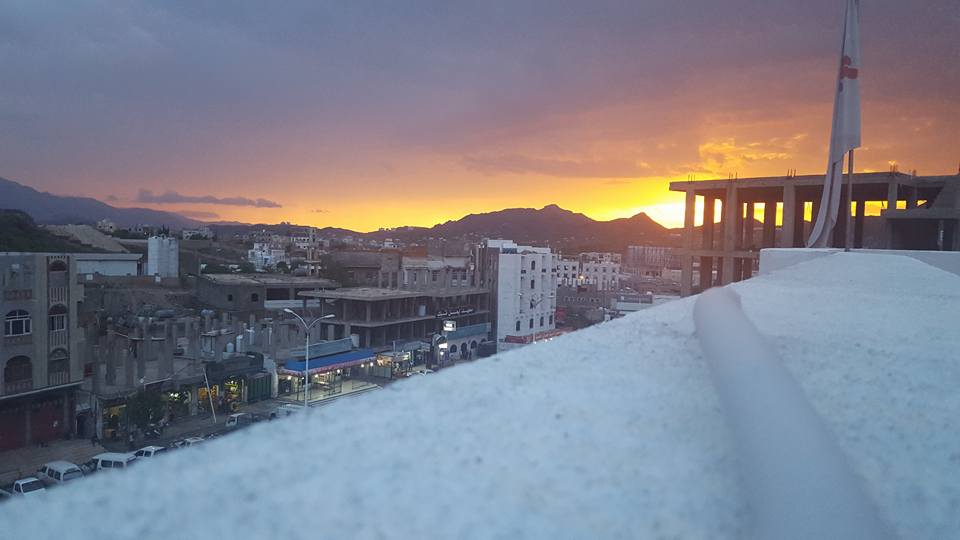President Jair Bolsonaro. (Isac Nobrega/Presidency Brazil/Handout via Reuters)
On the fourth floor of Taiz Mother and Child Hospital in Yemen, Nurse Adeline Oliver looks out the window: the hills before her are clothed with lush trees and rich pastures. The serene view is a contrast from what is happening just kilometres away. In the distance, explosions echo as bombs drop.
The MSF-supported hospital is in an enclave of Taiz that is under constant attack not only by shelling from the air but also from snipers.
Adeline, an operating theatre (OT) nurse from Johannesburg, recently spent six months there on assignment with Doctors Without Borders (MSF), recruiting and training nurses to work and save lives in the busy operating theatre.

The view over Taiz, Yemen from the MSF hospital (Photo: MSF)
Starting from scratch
“Because of the conflict, [the nurses] didn’t have work experience and certainly not much OT experience,” says Adeline. “I had to pretty much start from scratch. I had to train them, and the situation was intense, so they had to learn quickly.”
Training young nurses in such an emergency situation would have deterred many, but for Adeline it was a blessing; an opportunity to impart her knowledge and skills from 32 years of work in national and international hospitals.
“It was beautiful to watch. I was able to remove myself and watch them function as a professional team.”
Challenging work
Set up in 2015 at the beginning of the war in Yemen, the hospital aims to provide basic medical care. Many patients trek through the hills of Taiz for hours just to get there, but they don’t have another option when they need medical attention.
Due to the war, many medical specialists have fled the country to seek safer working and living conditions. MSF teams therefore have to work with who they find and the level of skill they possess to ensure that patients get the care they deserve.
“Our role is to provide basic medical care to those who don’t have any,” Adeline says recalling an infant who developed an abscess that engulfed his body and hampered his mobility.
“When this baby was born and we noticed this medical condition — which became a huge mass within days — we were saddened at the fact that we were unable to operate. There were no paediatric operating specialists in the area… Unfortunately, he succumbed to his condition. It’s so sad to watch these little ones die and we sometimes have to accept our limitations.”
Lessons to learn
Despite the challenges of working in a harsh environment, Adeline feels there is much to learn from the people of Taiz: “News reports about the war can never truly capture what people in Yemen are going through. They’ve had to make a conscious decision to live and survive despite the conflict. There isn’t one local I met who hadn’t lost a loved one, yet they carry on each day with a deep sense of gratitude and forgiveness.”
“They have let go of attachments to material possessions, because being alive is the only ‘possession’ that matters. They have forgiven those who took away from them. While many would harbour hatred, the Yemenis believe that they cannot dwell in pain. These are the lessons we can learn from them.”
ABOUT MSF ACTIVITIES IN TAIZ
Taiz city, with an estimated population of around 600 000, was the scene of intense fighting as of July 2015. MSF provided assistance to the military hospital, Yemeni International and Al-Risalah, and inside the enclave, MSF supported Al-Thawra and Al-Rawda hospitals. Altogether, MSF provided more than 15 400 emergency room consultations, 6 800 consultations for people with war wounds, 1 100 surgical interventions and 10 900 wound dressings. Relief items such as blankets, food and jerry cans were also distributed to displaced people in the city.
In November, MSF opened a mother and child hospital in the Al-Houban neighbourhood, providing emergency services and reproductive healthcare, and an outpatient department for children under 10. Some 7 800 outpatient consultations and 7 500 emergency room consultations were completed.
MSF is a private humanitarian international organisation providing emergency medical aid in nearly 65 countries worldwide. For its activities in Yemen, MSF does not accept funding from any government and chooses to rely solely on private donations